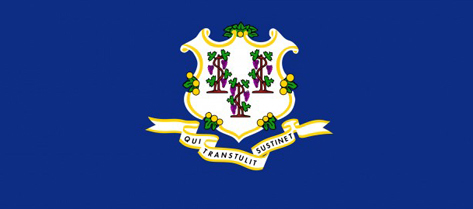State of
Connecticut
STATUTES: Connecticut General Statutes Annotated
Connecticut compulsory attendance law (§10-184) requires that all children, ages 7-15 (inclusive), must attend public school or the parents must show the child is "elsewhere receiving equivalent instruction in the studies taught in the public schools." There is no explicit statute either allowing or forbidding Released Time programs.
EDUCATION REGULATIONS: (Policy) Mark Stapleton, Chief of Legal Affairs in the State Board of Education (Hartford, 203-5663044) expressed that Released Time programs are allowed in Connecticut but each local school board issues its own specific Released Time regulations.
CASES: West HwYford Education Association v. Dayson DeCourey, 295 A.2d (1 972) In Dayson the Court recognized that the local school board "has broad power and discretion over education policy." In other words, the operation of Released Time programs are subject to each district's private discretion since the Legislature has not provided any statutory guidelines. ATTORNEY GENERAL OPINIONS: - NoneFCRTM RECOMMENDATIONS:
Like your state, many do not have specific laws or guidelines concerning Released Time. The absence of a specific law does not necessarily prohibit Released Time programs. In fact, it may allow a wider range of Released Time programs. For example, it is possible to offer Released Time classes as an off-campus elective class on the High School or Junior High level, which students take daily. This is being done in states such as Georgia, Florida, Utah, Arizona, and Idaho.
The particular challenge in your state is that in the absence of a specific statute, you will need to conduct research into the legal background of Released Time at the federal level (FCRTM can help!), and how decisions are made within your school system. The majority of school districts would require approval at the school board level, but many are moving to "site-based management,' which would perhaps allow individual school principals to approve a Released Time program. Once your research is complete, you will need to approach the appropriate decision-maker(s) with a proposal for a Released Time class.
Even with the Supreme Court decision of 1952 (Zorach vs. Clauson), we must remember that approval for a Released Time program is a privilege, not a right. School principals and school boards may accommodate a Released time program, but they are not required to do so. Experience teaches us that a carefully crafted approach, coupled with a positive relationship with school officials will usually open the doors for a Released Time program.
Information provided by:
The Fellowship of Christian Released Time Ministries
5722 Lime Ave. ˜ Long Beach, CA 90805
Contact Us